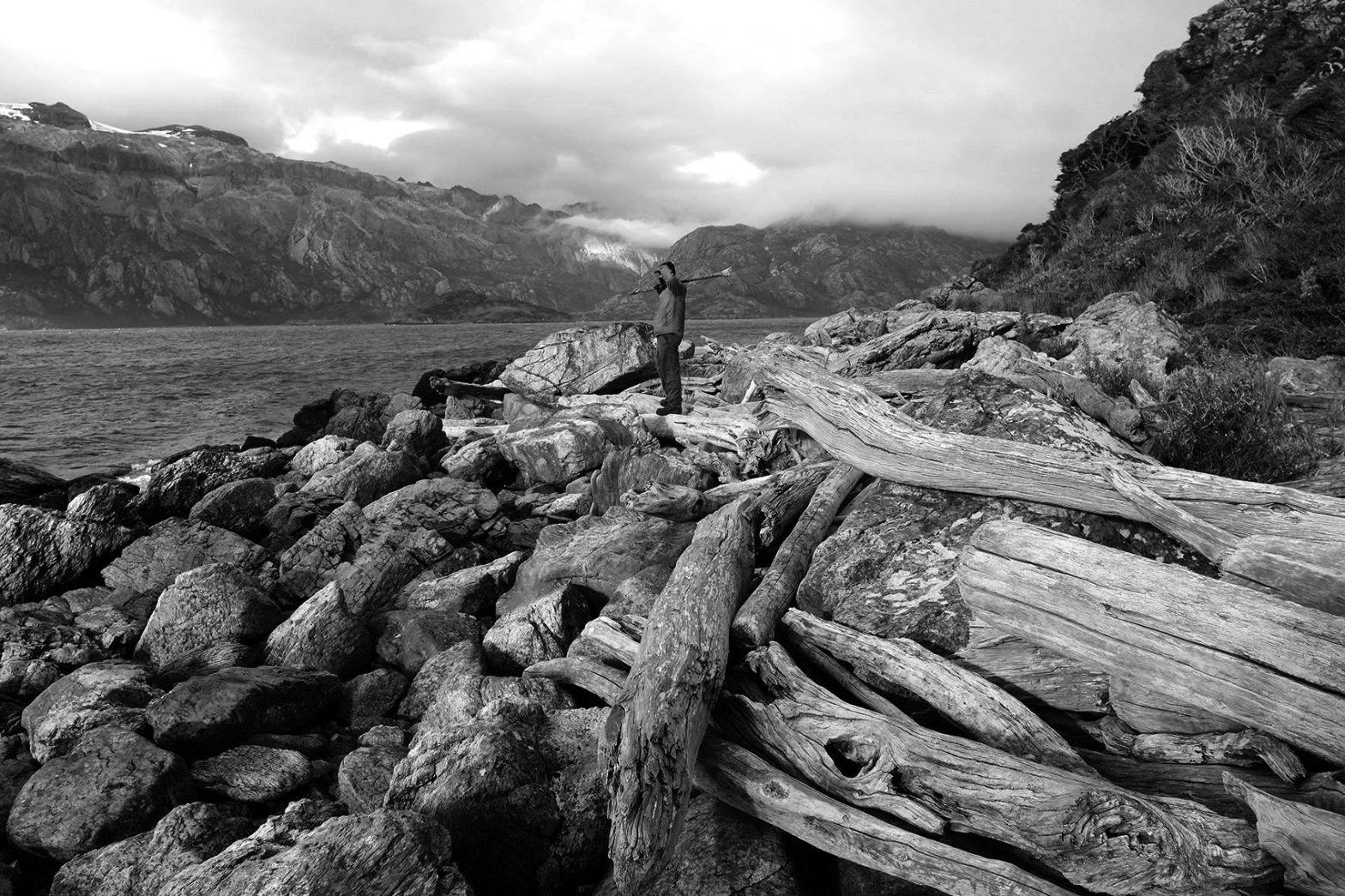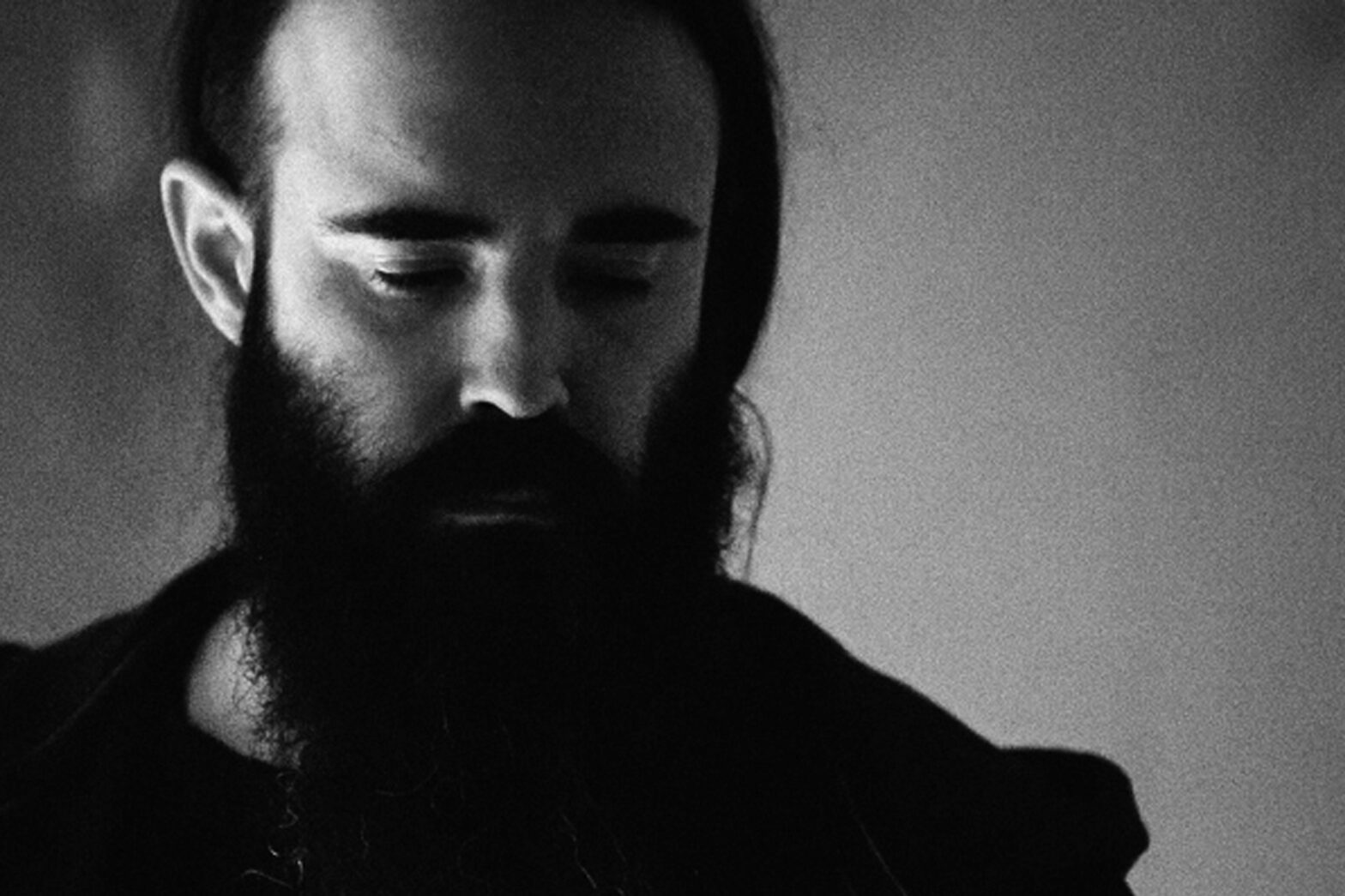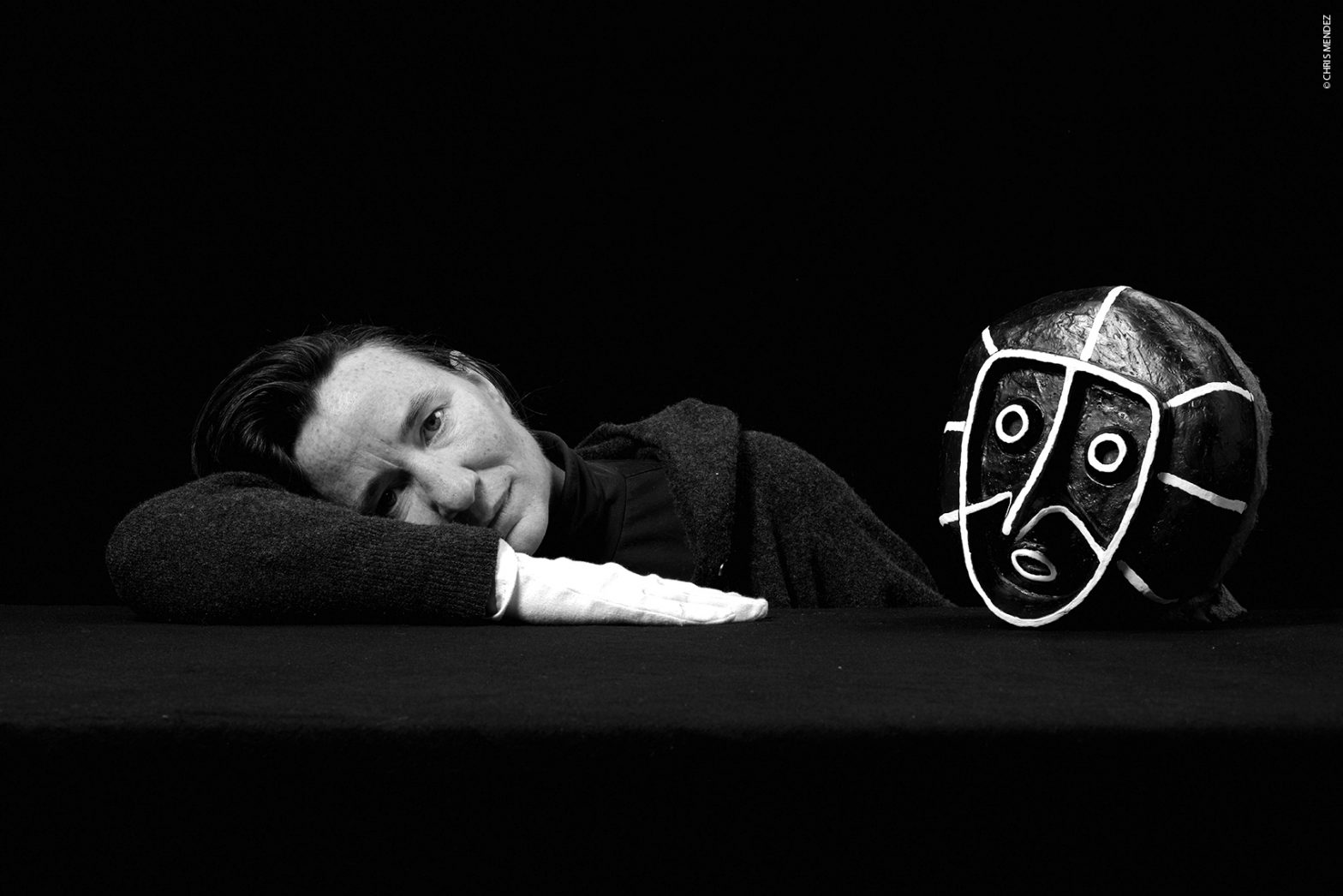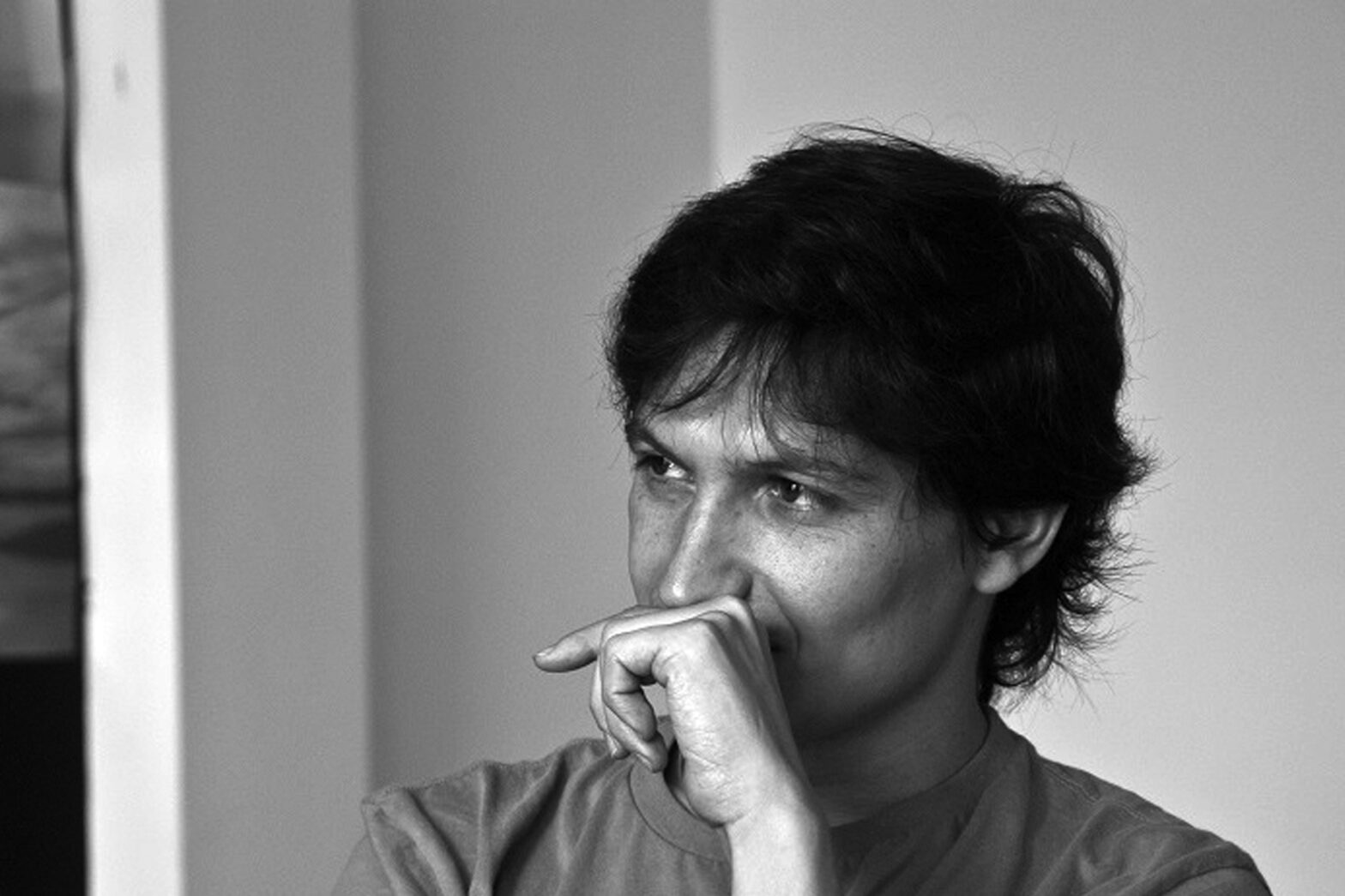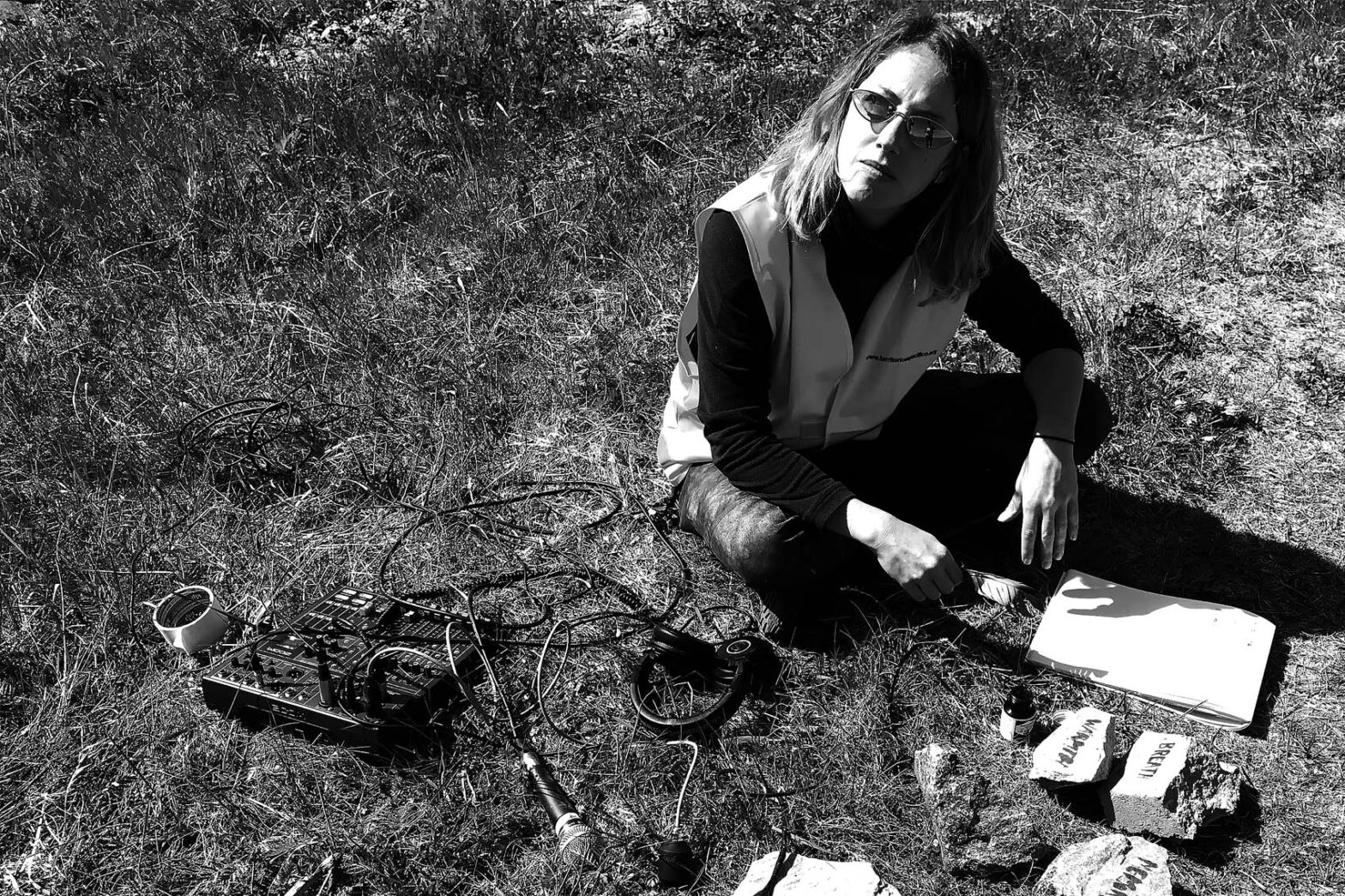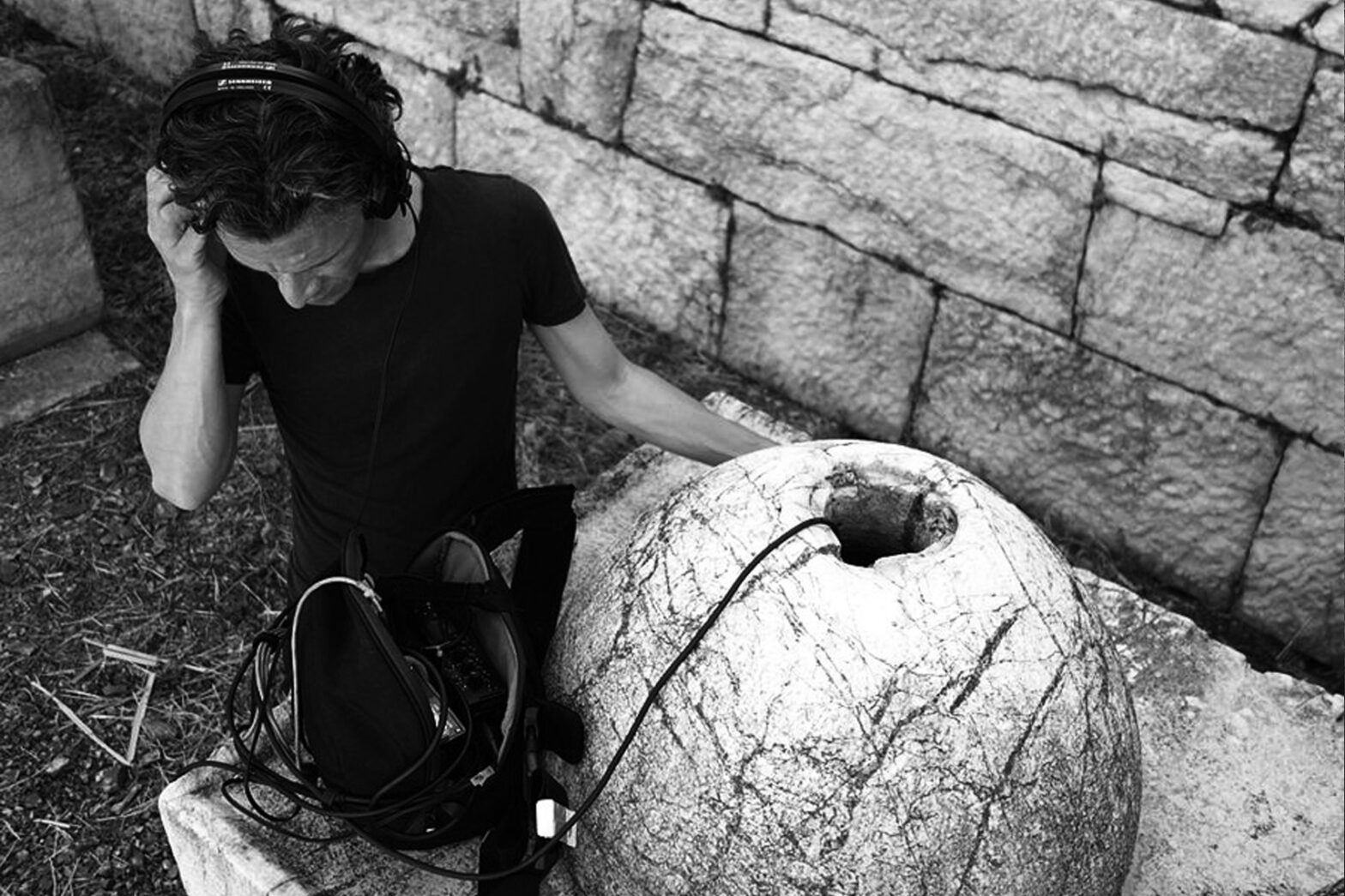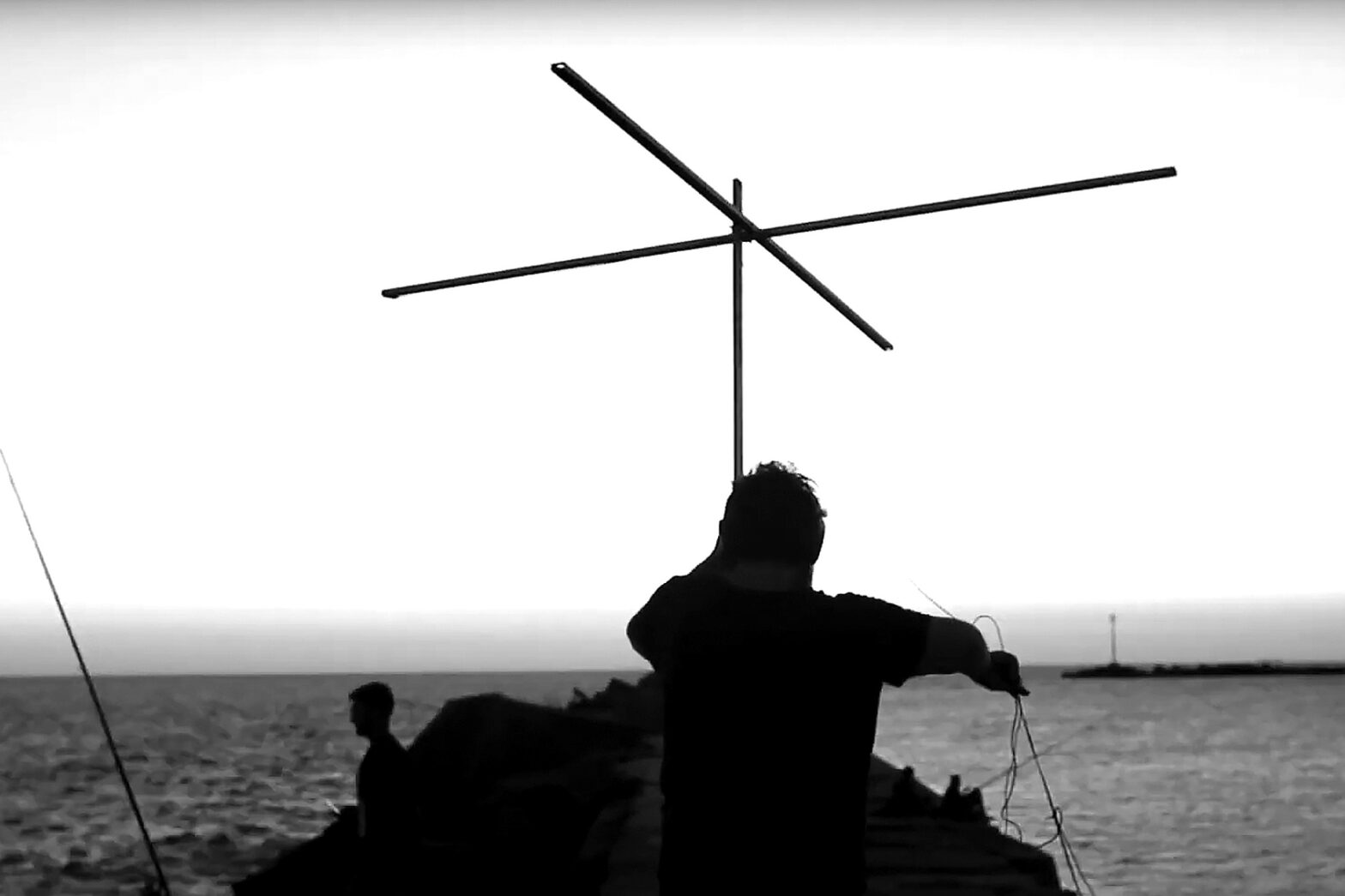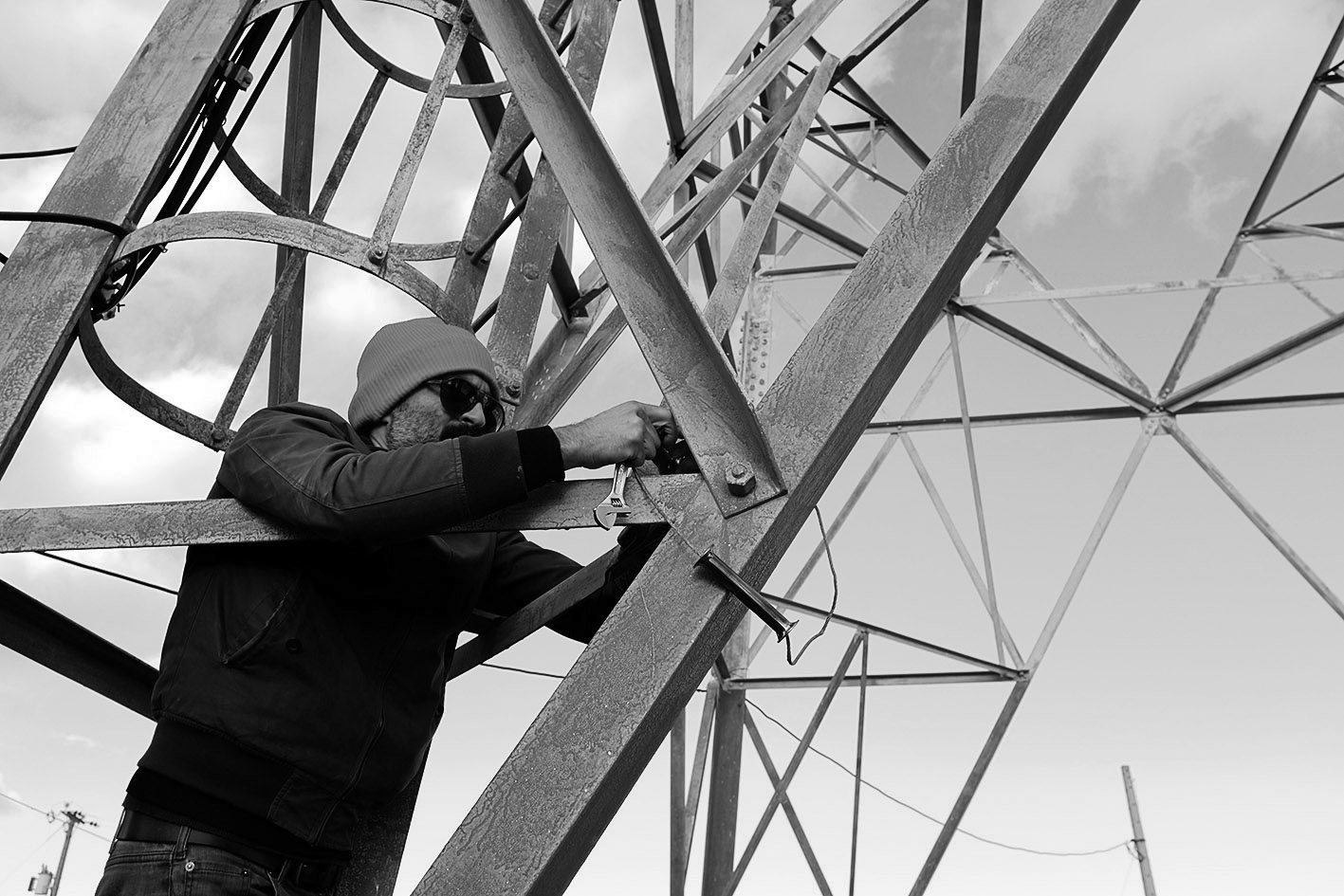Archaeologist, professor at Universidad de Magallanes (UMAG), Professor of Philosophy at the UdeC, MSc. in Archeology at the University of Cambridge, Diploma in Advanced Studies in Prehistoric Archeology at the Universidad Autónoma de Barcelona, PhD in prehistoric archeology at the Universidad de Barcelona and Visiting Professor at Harvard University. He has focused his research work in the field of prehistoric archeology and the Fuego-Patagónica ethnography. He currently works at the Centro de Investigación GAIA Antártica (UMAG)
Category archives: trip_04
Victor Mazón (ES)
His work exposes the unheard and unseen—addressing the inaccessible and experiencing vulnerability and awareness—to the viewer. Perception and altered states are key concepts in his performances through the use of sound or light. His work materializes in three main fields: actions or site-specific performances through experimental processes, exhibitions as consequences of previous actions, and collaborative works through seminars to form a communal dialog.
Claudia Augustat (AT)
Claudia Augustat is an anthropologist and since 2004 curator for South American Collections at the Weltmuseum Wien in Austria. Her research focuses on collections from the Amazon and Tierra del Fuego, material culture and cultural memory, on collaborative curatorship and the decolonization of museum praxis. She is head of the EU co-founded Creative Europe Project TAKING CARE. Ethnographic and World Cultures Museums as Space of Care.
Iván Flores (CL)
Iván Flores Arancibia (1978) is an academic and director of the Instituto de Artes Visuales and Galería Réplica at the Universidad Austral de Chile. PhD in Philosophy from the Universidad Autónoma de Barcelona, and Master in Contemporary Thought from the Universidad de Valladolid, he is also in charge of programming and curatorial work at the Museo de Arte Contemporáneo UACh Valdivia. His work lies on the frontiers between philosophy, visual arts, media and visual studies, cultural management, archiving, the body, new extractivisms, artistic research and creation. He has been an Erasmus Mundus ECW (2009-2010) and CONICYT (2011-2015) fellow, researcher at the Centro de Experimentación Artística La Escocesa (2019-2020), assistant professor at the Universidad Autónoma de Barcelona (2012-2019) and curator at the Centro de Cultura y Memoria El Born in Barcelona (2019-2021). He has proposed curatorials at MAC Universidad de Chile (2022), Ars Electronica Austria (2020-2022), Galería Réplica (2019-2023), FIFVAL (2022). Has been principal investigator in several projects, including “Cartografías del Entre” (VIDCA 2021-2022), “Los Seminarios de Ronald Kay” (FONDART 2022-2023) and “Memoria Visual de Germán Arestizábal” (2022-2023). He has exhibited artistic creation processes such as “Arqueología de la mutación” (Austria, 2020) and “Lañilawal” (Austria, 2022). Editor of the Archivism project of Galería Réplica / Ecfrasis and Centro Cultural de España. Researcher responsible for institutional projects such as Archivo Regional de Artes, Los Ríos, I Etapa (2021), UACh-CECREA agreement (2020-2023), Fondo de Patrimonio Audiovisual 2023, Programa Territorios en Suspenso 2021-2023, Programa de Residencias MINCAP-UACh 2023. Has published in specialized magazines such as ARTNODES, the book-object Cronogramas de una revuelta (2022, Almacén Editorial) and is currently working on the books De la Metaxologia (Metales Pesados, 2023), Cartografías del Entre (Ecfrasis, 2023) and Diferencias tecnológica y happening extendido en Ronald Kay (Almacén Editorial, 2023).
Florencia Curci (AR)
She works in Buenos Aires as a curator, radio and sound artist. Her research is based on the notions of noise and rhythm as relative concepts that shape perception, communication and subjectivation. She is interested in cooperations and in opening spaces of encounter through sound and listening. Her work has been commissioned by the Centro Cultural Kirchner, the Cultural San Martín [AR], Medialab Prado [ES], Tsonami [CL], Aural Festival [MX], Kunst Radio [AT] and Mayhem [DK], among others. Florencia completed her studies in Expanded Music at UNSAM and completed the Artists Program at the Torcuato Di Tella University, and since 2017 she has been directing CASo – Centro de Arte Sonoro, a program of the National Ministry of Culture, within which Radio CASo operates.
Carsten Stabenow (DE)
works as independent curator, producer, communication designer and artist on the intersection of artistic production and mediation. He studied communications and postgraduate interdisciplinary studies in Berlin and is initiator of diverse festivals, formats and initiatives within the context of new media, art + science and sound art.
Carsten Stabenow is initiator and artistic director of Tuned City and co-founder of the Berlin art and media production platform dock. As an artist he has realised several installations and performed internationally.
In his work he is interested especially in physical, social and political parameters of space.
Christian Espinoza (CL)
architect and artist, working, researching and experimenting with territories under the esthetic of dark ecologies. Currently, its production revolves around the collision points between biological and electromagnetic corridors, and the liminal sites in the large lax, discontinuous, heterogeneous and multipolar areas of the extractivism macro-regions. His sound research includes listening as an active and political action, a technology and, in many cases, an extension of the ecological battlefield. His work has been presented at different festivals, spaces and galleries in Argentina, Colombia, Chile, Brasil and France.
Nicolás Spencer (CL/DE)
is a sound artist with an academic background as a forestry engineer (Master’s degree, University of Chile) and multimedia art (Master’s degree, University of Chile).
His work focuses on ways of understanding nature in all the depth and complexity. His installations mix the massiveness of its components (rocks, metals, gravity, wind, etc.) with the fragility and immateriality of sound. Spencer’s artistic practice is contaminating (and contaminated by) other areas of knowledge as a way of generating alternative epistemological and aesthetic perspectives.
